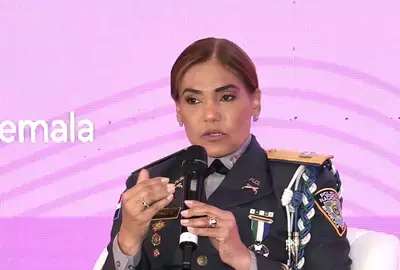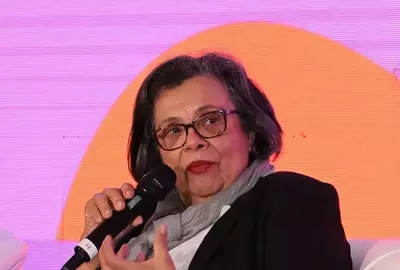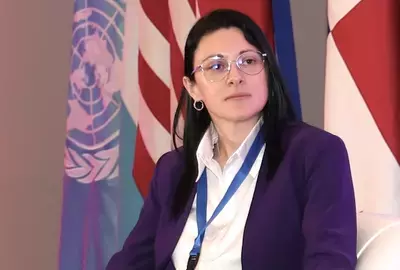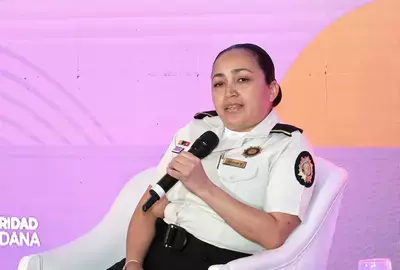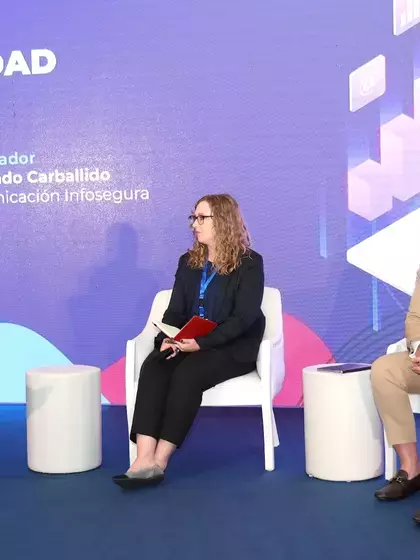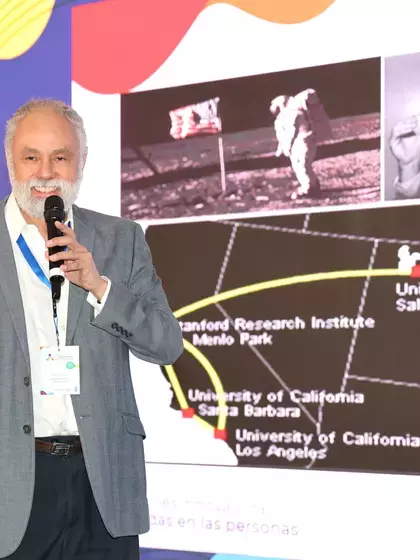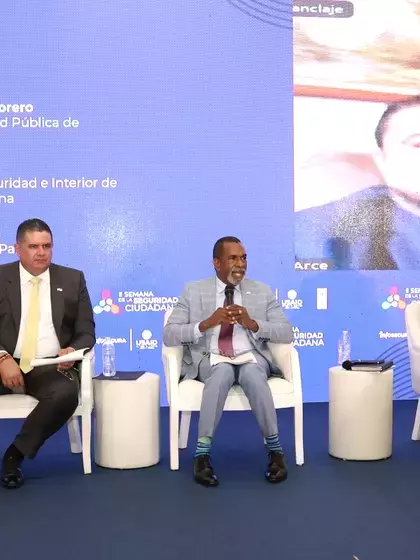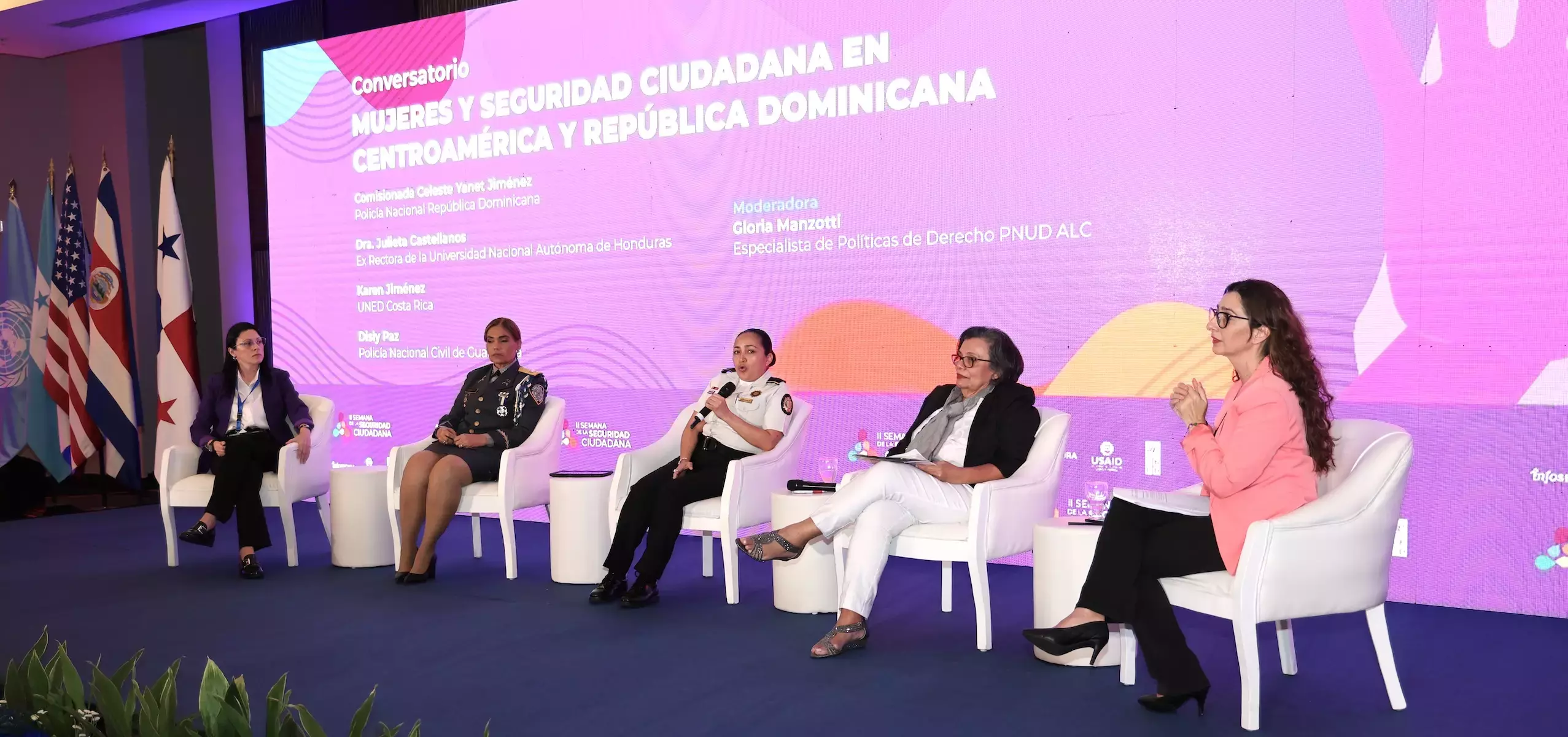
Developments and Challenges in Citizen Security with a Gender Approach
InfoSegura's Second Citizen Security Week wrapped up day two with a panel discussion on “Women and citizen security in Central America and the Dominican Republic.” With UNDP Rights Policy Specialist Gloria Manzotti moderating, this was an ideal space for participating citizen security leaders to share their experiences and insights.
Manzotti first drew attention to the fact that, despite advancements, the task of mainstreaming gender in security policies is still unfinished. She drove home the importance of bringing more women into security sector policy discussions, and she recalled the unmet challenges of inclusion, wage gaps and access to decision- making processes.
Four women participated in the discussion: Celeste Yanet Jimenez, National Police Commissioner, the Dominican Republic, Julieta Castellanos, Former Rector, National Autonomous University of Honduras, Karen Jimenez, Director of the Police Science programme at Distance State University of Costa Rica and Disly Paz of the National Civil Police de Guatemala.
The first one to answer moderator Gloria Manzotti was Karen Jimenez who emphasized the importance of starting to address gender equity in the education process. As Director of the Police Science programme at UNED Costa Rica, she described the way that—informed by gender studies—police intelligence and criminal analysis examines the influence of gender roles on criminal behaviour. “Gender equity,” she continued, “is a crosscutting theme in all areas of study. It influences police training and encourages research with an impact on social and public policy.”
Police Commissioner Celeste Yanet Jimenez from the Dominican Republic explained that InfoSegura, “has had a positive impact on the fight against gender-based violence in my country.” Her remarks focused on the Single Case Register that was created to systematize data analysis and the training provided. “This allows us to use scientific evidence in our work on violence,” she explained. USAID also sponsored a project to build a core team of gender- focused criminal analysts.
Commissioner Jimenez shared the success of the comprehensive strategy to counteract gender-based violence in the Dominican Republic. “Above all,” she assured participants, “it has expedited the execution of arrest warrants.” She concluded by noting that, despite the fact that women comprise 50 per cent of the world's population, only 20 per cent of law enforcement officers are women. Their positions in decision-making circles are “more precarious or almost non-existent.”
Disly Paz of the Guatemalan Police explained the way InfoSegura transformed information management in Guatemala by “systematizing and training the statistics section, which has undergone a significant change. Quick database updates enable us to conduct high-quality data analysis, generating crime prevention strategies and campaigns to encourage women to report.” Ms. Paz emphasized the importance of continually handling challenges in maintaining the quality of information to strengthen prevention.
From academia, former Rector of the National Autonomous University of Honduras Julieta Castellanos concentrated on the relevant effect InfoSegura has had in producing information for use in effective policymaking throughout the region.
Ms. Castellanos stressed the importance of getting data to decisionmakers and the “crucial” role of discussion with authorities, victims and civil society organizations. In terms of addressing challenges, she pointed out the positive change in the way gender- based violence is handled and the need to strengthen projects with funding to ensure they continue over time.
“Without accurate information, there is no way to implement policies. The basis for a policy to be successful has to be information that has been prepared scientifically and quality data,” she concluded.

